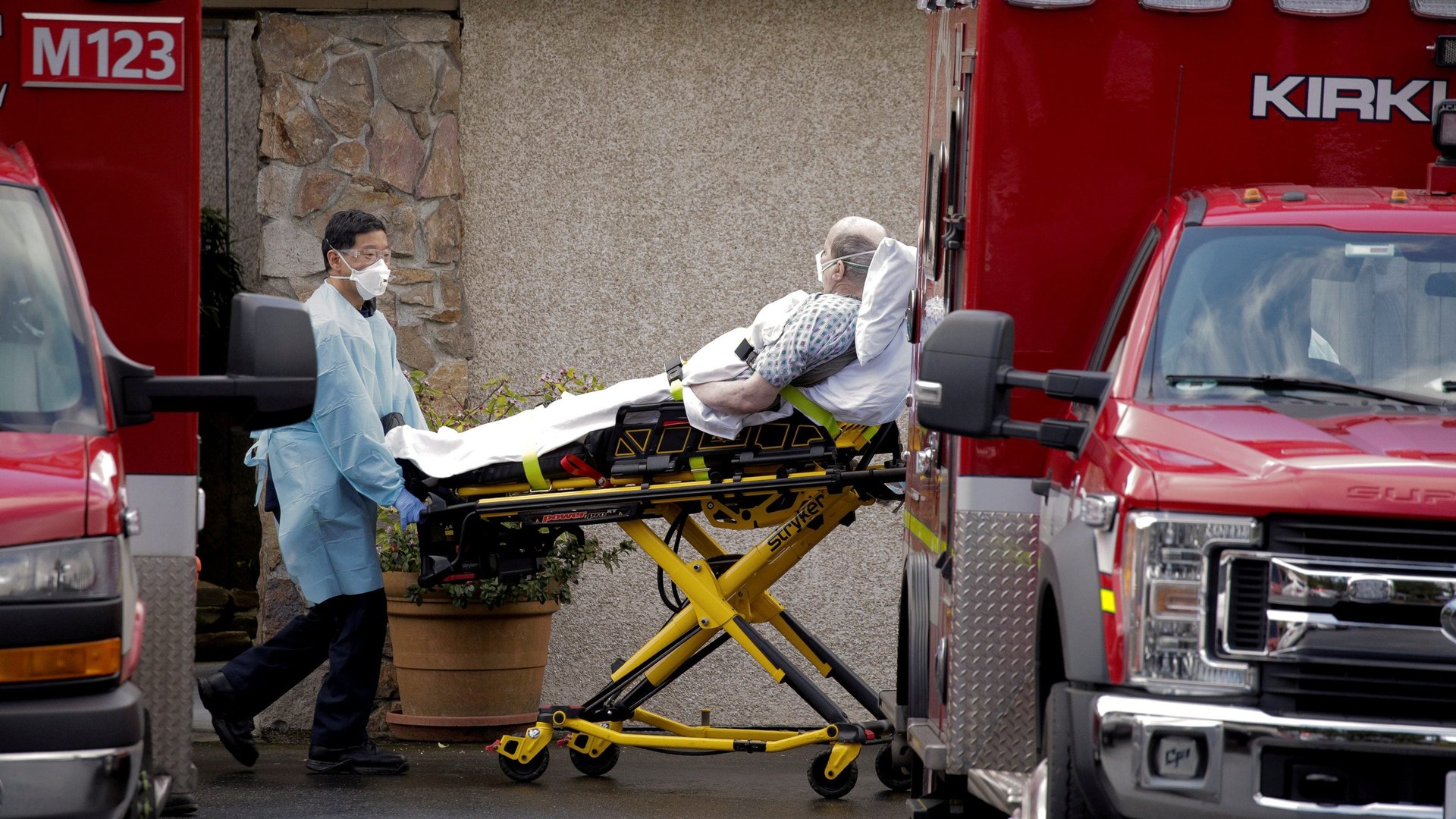Coronavirus prevention is far more accessible for the rich
The single biggest way to protect yourself and others from coronavirus is to limit contact with others. For myriad reasons, this is far more accessible for wealthy people.


The single biggest way to protect yourself and others from coronavirus is to limit contact with others. For myriad reasons, this is far more accessible for wealthy people.
Abstaining from public transit is more feasible and already more commonplace for people with high-paying jobs. Working from home is similarly an easier option for the wealthy. A 2016 survey found that a third of people who earn more than $1,441 per week have the option to work from home, compared to 9% of those who earn less than $581 per week.
In the US, sick leave, too, is often unavailable to front-line workers in retail and service jobs. Though some large employers, like Walmart, have adjusted their policies in the wake of Covid-19, workers at companies with 500 employees or more are not eligible for the paid sick leave mandated in emergency legislation awaiting US Senate approval after it was passed in the House and blessed by the Trump administration.
Covid-19 didn’t create these disparities, of course. But it puts them into sharp focus.
“The lack of benefits means it is very hard to access medical care and also less likely that people can afford to take time off to do so,” says Jesse Bump, a lecturer on global health policy at the Harvard T.H. Chan School of Public Health. “It is far less possible to take the day off when not feeling well if doing so means you can’t eat that day or won’t make rent that month. The stark inequalities in American society threaten the health of everyone.”
Preparing to spend two weeks at home under quarantine is also expensive. It can cost hundreds of dollars to buy enough food to last that long, and plenty of households would struggle to spend that money in one go. A 2018 survey found that 40% of US households said they’d struggle to come up with an extra $400 in an emergency.
“A lot of households have really tight balance sheets and are short on liquidity,” says Anqi Chen, assistant director of savings research at the Center for Retirement Research at Boston College. “Trying to stockpile could add stress to household balances and budgets.”
Coronavirus also exacerbates health inequalities that already exist along income levels. “Those lower down the social ladder are much more likely to have underlying health conditions and multiple co-morbid conditions, making them more vulnerable to having a serious or fatal case when they are infected,” Kate Pickett, professor of epidemiology at the University of York, tells Quartz via email. She says coronavirus is also likely to exacerbate socioeconomic disparities. “Those with fewer resources are less able to absorb economic shocks, and are more likely to be tipped into poverty, debt and unemployment,” she writes.
The solution is not simply for companies to provide more benefits, though of course they should, argues Pickett. She says coronavirus should be a wakeup call to everyone about the value of public services to protect people’s health. “Just as in the global financial crisis, the taxpayer will be providing the social and economic security nets that we needs,” she writes.
Bump agrees, noting that historical organized responses to infectious diseases shaped modern government. “All the urban services such as sewerage, sanitation, and filtered water were innovations to combat cholera,” he notes, while many city councils were developed in aid of public health projects.
“Over the recent decades many people in developed countries have become forgetful and lost the solidarity created by the shared experience of infectious disease,” he adds. But clear safety nets are essential. “Universal access to essential health services, environmental protections, equality in education, and equality of opportunity are the most fundamental elements of preparedness,” he says.
Historically, disease and destruction have led to greater equality as those who survive are able to demand higher wages. There’s no indication of coronavirus leading to social benefits at the moment, but the pandemic’s massive impact is, at the very least, a powerful reminder of the value of safety nets.